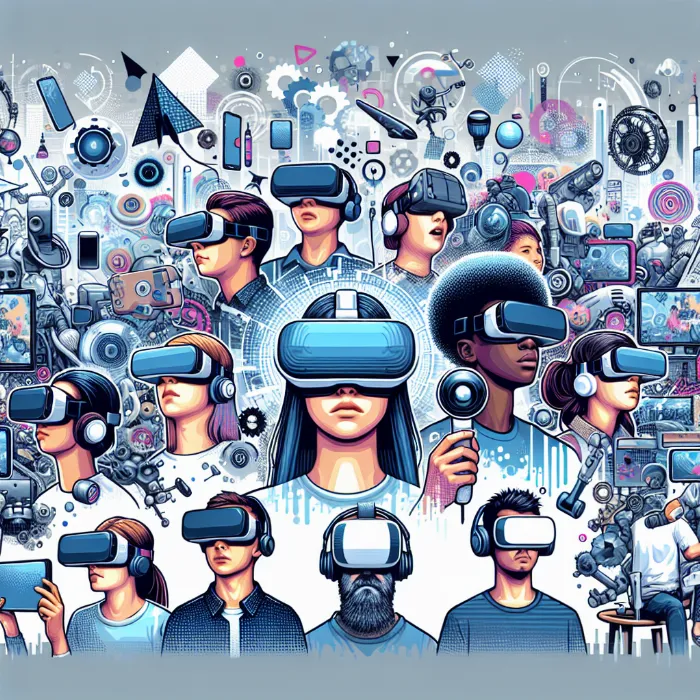Discover why Generation Z is increasingly opting for virtual reality environments over traditional in-person gatherings, revolutionizing how social interactions are perceived and pursued in the digital age.
The Evolution of Socializing: How Generation Z is Pioneering Virtual Reality Hangouts
In an era where digital technology is at the forefront of nearly every aspect of our lives, it comes as no surprise that Generation Z—those born roughly between 1997 and 2012—is leading a significant shift in social interaction preferences. Recent studies indicate a growing inclination among this young cohort towards virtual reality (VR) spaces over traditional in-person gatherings, marking a pivotal transformation in how future generations may choose to connect and interact socially.
Insights from Recent Studies
A study conducted by PewResearch (source: Pew Research Center) reveals that over 60% of Gen Z individuals prefer engaging in VR environments for social activities. This trend is not only indicative of their comfort with technology but also highlights their desire for new experiences that transcend conventional physical limitations.
Further analysis points to several key factors driving this preference:
- Enhanced Control: VR provides users with the ability to curate and control their environments to an extent not possible in physical spaces.
- Diverse Experiences: Virtual settings offer limitless possibilities for exploration and interaction, from attending concerts to traveling virtually.
- Safety and Convenience: The ongoing global health considerations have undoubtedly played a role, making virtual gatherings a safer and more convenient option.
Impact on Social Skills and Connectivity
While the shift towards digital hangouts raises questions about the impact on social skills, experts suggest that virtual interactions can still offer significant value. Dr. Sarah Jones, a psychologist specializing in digital behaviors, explains, "Virtual environments can foster unique social skills, encouraging users to learn new modes of communication and cultural competence that are different but no less valuable than those used in face-to-face interactions."
Challenges and Considerations
Despite the benefits, there are challenges to consider with VR socializing. Issues such as cyberbullying, privacy concerns, and the digital divide pose real threats in virtual spaces, necessitating careful regulation and awareness to ensure a safe, inclusive environment for all users.
Experts like Dr. Jones advocate for developing robust digital literacy programs that equip young users with the necessary skills to navigate these challenges effectively.
Conclusion
The rise of virtual reality as a preferred mode of socializing among Generation Z highlights their propensity for innovation and adaptation to technological advancements. As VR technology continues to evolve, it could offer even more immersive and interactive experiences, further appealing to young audiences and potentially reshaping the social landscape. Embracing these changes while addressing the accompanying challenges will be crucial for ensuring that virtual spaces foster healthy, positive interactions.

















Comments 0